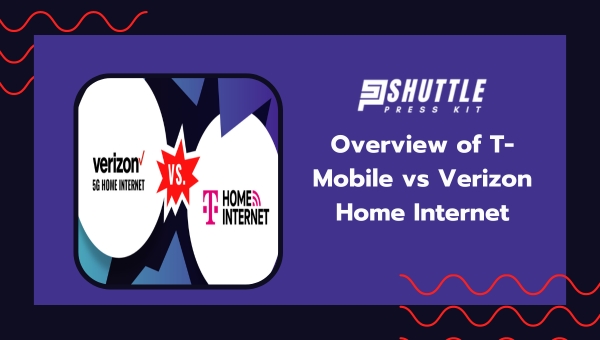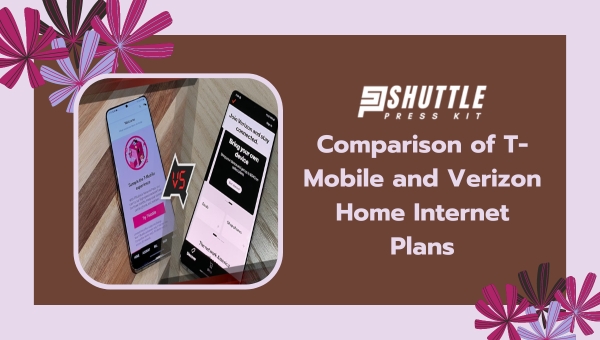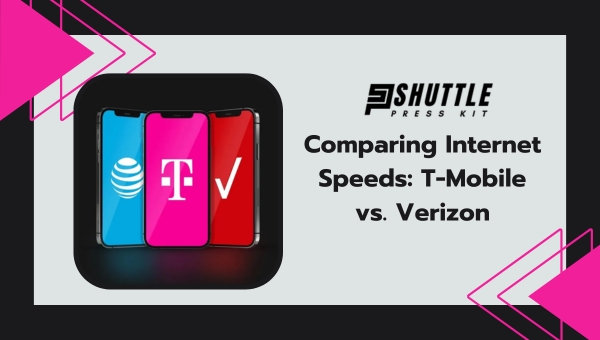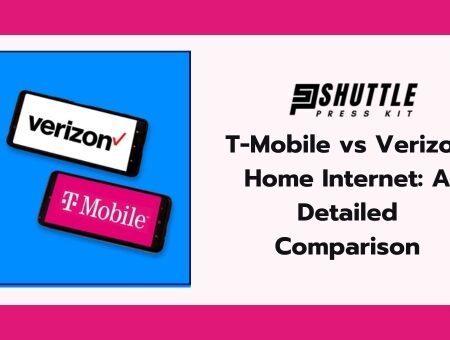Ever wondered which home internet provider between T-Mobile and Verizon brings you the best benefits? You’ve landed at the right place! This detailed comparison of T-Mobile vs. Verizon Home Internet will serve as your comprehensive guide, imbuing all necessary factors from speed, and pricing to customer support.
In the matchup of T-Mobile vs. Verizon Home Internet, it isn’t a straightforward answer as to which emerges superior. It primarily depends on individual needs and conditions such as your location, desired speed requirements, or even budget constraints that ultimately determine which service may be better suited for you.
| Attributes | T-Mobile Home Internet | Verizon Home Internet |
|---|---|---|
| Technology | 5G/4G LTE | 5G/4G LTE and Fiber |
| Pricing | $50/month (with AutoPay) | $40/month (with AutoPay) for LTE, $60/month (with AutoPay) for 5G, starting at $39.99/month for Fiber |
| Data Cap | No data caps | No data caps |
| Download Speed | 25-100 Mbps (LTE), up to 300 Mbps (5G) | 25-50 Mbps (LTE), up to 300 Mbps (5G), 200 Mbps – 940 Mbps (Fiber) |
| Upload Speed | 3-35 Mbps | 4-12 Mbps (LTE), 20-50 Mbps (5G), 200-880 Mbps (Fiber) |
| Contract | No annual |
Overview of T-Mobile vs Verizon Home Internet
T-Mobile and Verizon have both ventured into the home internet market, providing strong alternatives to traditional broadband services. T-Mobile offers 5G Home Internet, banking on their expansive 5G network to deliver rapid and reliable internet service without the need for wires or fiber installation.

This simplicity makes T-Mobile’s service an attractive option, especially for those seeking easy setup and mobility. They target suburban and rural areas where traditional broadband might be less robust, often at competitive pricing.
Verizon Home Internet, on the other hand, provides both 5G Home Internet and Fios, their fiber-optic internet service. Verizon’s 5G Home Internet is similar to T-Mobile’s in terms of leveraging its 5G network, appealing to those looking for quick and flexible internet setups.
However, Verizon Fios offers unmatched speed and reliability for users who prioritize a stable and fast internet experience for heavy usage and multiple devices. Ultimately, the choice between T-Mobile and Verizon may depend on specific needs, such as speed requirements, geographic location, and installation preferences.
Also Read: How to Fix Starlink No Signal? – Quick Solutions Guide
Comparison of T-Mobile and Verizon Home Internet Plans
Choosing between T-Mobile and Verizon for home internet involves understanding each provider’s offerings in terms of plans, pricing, and bundled options.

Both companies provide competitive 5G home internet services aiming to cater to different user needs with their distinct plan structures. Here’s a concise comparison:
| Provider | Plan Options | Price | Speed Range | Data | Bundle Discount |
|---|---|---|---|---|---|
| T-Mobile | Single Plan Option | $60/month | Average speeds from 33 Mbps to 182 Mbps | Not specified | Bundling reduces the cost to $40 with the mobile plan |
| Verizon | – 5G Home | $60/month | Up to 300 Mbps | Unlimited | Standard plan as low as $25 with bundle |
| – 5G Home Plus | $80/month | Up to 1,000 Mbps | Substantial discounts with unlimited cell plans |
Both providers offer unique advantages depending on what you value most; affordable simplicity with T-Mobile or faster speed tiers and deeper bundle discounts with Verizon.
Comparing Internet Speeds: T-Mobile vs. Verizon
When it comes to internet speeds, T-Mobile and Verizon both offer robust options, albeit with some differences. T-Mobile has been rapidly expanding its 5G network, frequently boasting higher download speeds in urban areas thanks to its mid-band spectrum.

Customers in metropolitan regions often report faster and more consistent speeds with T-Mobile, which has positioned itself as a pioneer in 5G technology. However, T-Mobile’s coverage can be spotty in rural areas, where their speeds may not be as impressive.
Verizon, on the other hand, is renowned for its extensive coverage and reliability, often leading the market in signal availability across the United States. Verizon’s 5G network, bolstered by its mmWave technology, offers extremely high speeds, particularly in select urban zones where its ultra-wideband 5G is available. However, this high-speed coverage is currently limited to certain cities, and Verizon’s overall 5G speeds can sometimes lag behind T-Mobile’s in less densely populated regions.
Despite this, Verizon’s 4G LTE network remains exceptionally strong, providing fast, reliable internet access in areas where its 5G network has yet to roll out comprehensively.
Comparison of T-Mobile and Verizon Coverage
When choosing a mobile provider, coverage is one of the most crucial factors. Here’s how T-Mobile and Verizon stack up in terms of cellular network coverage, particularly with their latest advancements in 5G technology:
- 5G Coverage:
- T-Mobile: Leads the industry in 5G coverage across the United States, having laid an extensive foundation for its Ultra Capacity 5G network.
- Verizon: Focuses on its 5G Ultra Wideband service available in select major city areas, offering extremely high speeds where accessible.
- Rural and Nationwide Reach:
- Verizon: Known for exceptional reach, making it more suitable for users in rural areas through its robust Nationwide and LTE networks.
- T-Mobile: While it also provides widespread coverage, it might lag slightly behind Verizon concerning overall area reach, especially in less populated regions.
- Speed Comparisons:
- T-Mobile: Takes precedence when comparing average data speeds nationwide thanks to its substantial investment in mid-band spectrum for faster connectivity.
- Verizon: Offers competitive speeds but primarily excels through localized pockets of ultra-fast Ultra Wideband service.
This comparative overview highlights how geographic location and typical usage styles can influence choosing between T-Mobile and Verizon.
Also Read: Starlink Volcano Mount Guide: Easy DIY Installation Tips
FAQs
What speeds can I expect with T-Mobile vs. Verizon home internet?
With T-Mobile, you may get average speeds of 100 Mbps, while Verizon offers varying speeds depending on the plan selected, ranging from 200 Mbps to up to 1 Gbps.
Which is more reliable –T-Mobile or Verizon home internet?
Both are reputable, but reliability can vary based on location and the plan chosen; consult local reviews to make a more informed decision.
How does cost compare between T-Mobile and Verizon home internet?
Both companies have competitive pricing, with T-Mobile charging around $50/month while Verizon’s fees start at $40/month for basic plans.
Do both T-Mobile and Verizon offer customer support services?
Yes, both companies offer comprehensive customer support via different channels like online chat, email and telephone assistance.
Are their website and app interfaces user-friendly?
Both T-Mobile and Verizon boast robust websites and apps with intuitive navigation systems facilitating a fairly seamless user experience.
Also Read: Amazon’s Project Kuiper vs Starlink: Showdown Unpacked
Conclusion
In the everlasting debate of T-Mobile vs. Verizon home internet, both services have presented strong offerings. If speed, range, and reliability matter most to you, Verizon may hold the upper hand with its far-reaching network and proven infrastructure.
On the other hand, T-Mobile excels in its affordable pricing plans and commitment to customer service satisfaction. Regardless of your final choice, both companies strive to provide robust home internet solutions that cater to a variety of user needs.
